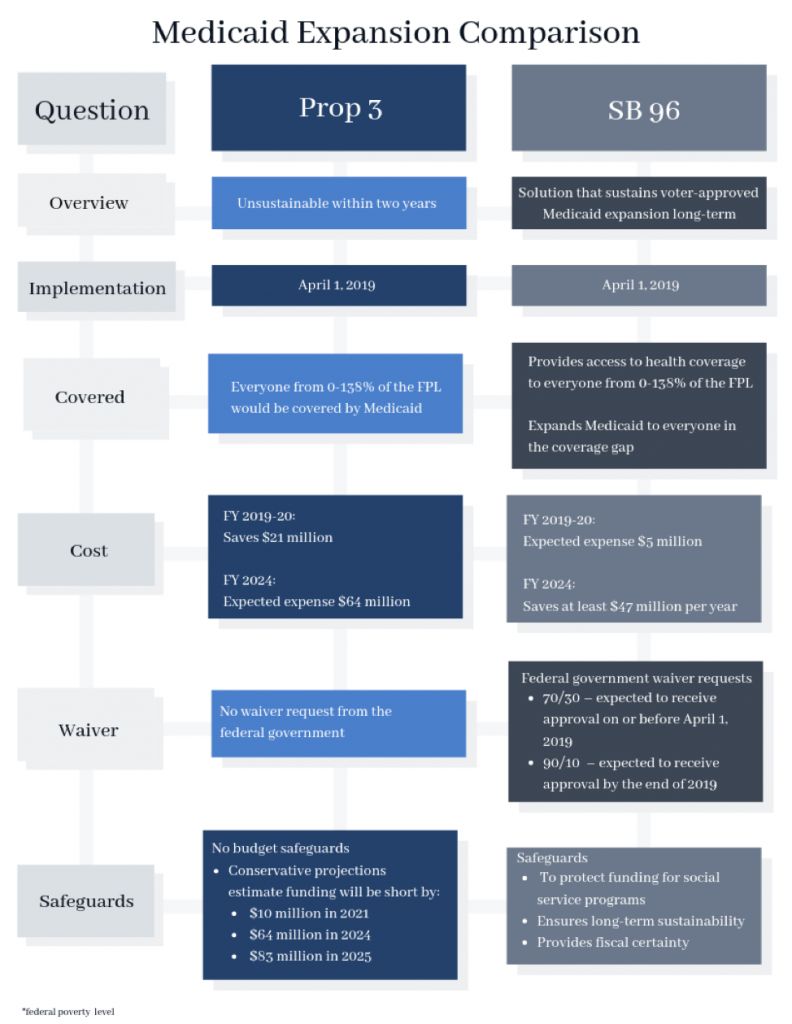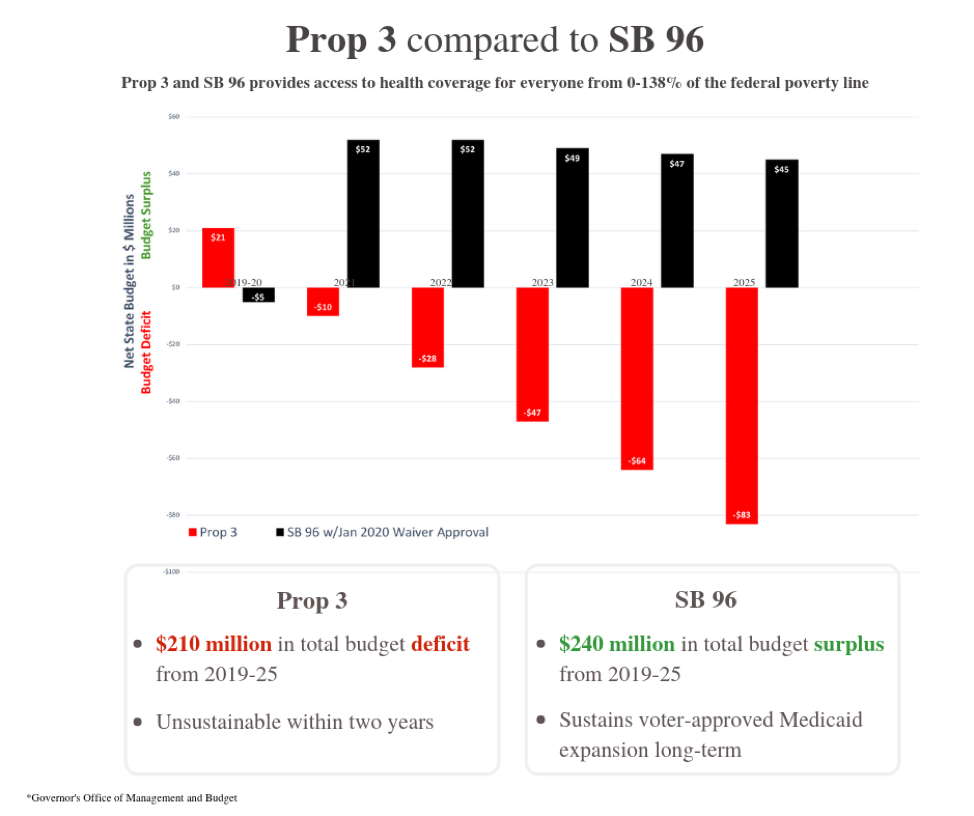SB 96 – 4th Substitute
Utah Legislature expanded Medicaid to individuals in the coverage gap and honored the will of the people who voted for Proposition 3 while making sure the expansion was sustainable long-term.
Individuals in the coverage gap – those making 0-100 percent of the federal poverty level (FPL) – who previously did not have access to health coverage will have access to coverage beginning April 1, 2019, just as in Prop 3. Those earning 100-400 percent of FPL currently, and will continue to, have access to affordable and quality subsidized health care. SB 96, Medicaid Expansion Adjustments, sustains the voter-approved Medicaid expansion long-term while protecting the constitutionally obligated requirement to balance the state budget. Prop 3 passed a .15 percent sales tax increase to pay for the program. However, projections show the increase does not generate enough revenue to pay for it. According to the Governor’s Office of Management and Budget projections, Utah would experience a shortfall of more than $10 million by 2021, nearly $65 million by 2024 and an $83 million shortfall by 2025. Left unchecked, this expansion would threaten other programs’ funding, i.e. education, transportation and public safety. For example, California projected costs over three years to be $11.6 billion for Medicaid expansion and experienced actual costs of $43.7 billion. Alaska’s actual costs of $593 million were 85 percent higher than the projected $320 million. Ohio’s projected cost was $7.4 billion, and their actual costs ended up totaling more than $14.5 billion over three years. To prevent a similar financial crisis, Utah legislators crafted an amendment that sustains the voter-approved Medicaid expansion long-term while upholding the spirit of Prop 3. Proposition 3 included an automatic inflation adjustment, which has significant costs associated with it and pays for healthcare conglomerates. SB 96 puts safeguards in place to protect funding for social service programs, ensures long-term sustainability and provides fiscal certainty. These benefits are accomplished by forgoing the automatic inflation adjustment, utilizing the .15 percent sales tax increase and adding in a hospital assessment. Medicaid has been and continues to be a high priority for Utah senators. That being said, it would be unfair to every Utah citizen to declare Medicaid the single highest priority, above all other priorities. Utah, being the innovative and economical state that it is, enhanced Prop 3 to be more inclusive and implement programs aimed at self-sufficiency. To do otherwise would be a disservice to other programs relying on funding; programs which would then be endangered by unchecked Medicaid spending. Additionally, SB 96 includes a 12-month continuous care program, which allows individuals the option to keep their coverage while they get a job, earn more money and transition to commercial coverage. Prop 3 did not incorporate this. SB 96 tales a balanced, compassionate approach while ensuring the long-term sustainability of Utah’s Medicaid program.To summarize, SB 96:
-
Provides access to health coverage for everyone from 0-138 percent of the FPL
-
Expands Medicaid to everyone in the coverage gap
-
Gives access to premium health insurance to everyone from 100-138 percent of the federal poverty line at a cost of only 2 percent of their income, which is about $25 per month
-
Brings money to Utah from the federal government in the form of an insurance subsidy as opposed to a Medicaid program; this means Utahns benefit from federal subsidies paid to reduce the cost of coverage purchased in the exchange
-
Sustains the voter-approved expansion long term
-
Includes programs and assistance to help individuals toward a pathway toward self-sufficiency
-
Fulfills the will of voters within the funding allocated by the voters
-
Listened to the will of the people and implemented voter-approved Medicaid expansion while making sure Utah can manage the budget in a sensible manner

 Tags: christensen, coverage, insurance, medicaid, medicaid expansion, medicaid expansion adjustments, prop 3, sb 96, utah legislature, utah senate
Tags: christensen, coverage, insurance, medicaid, medicaid expansion, medicaid expansion adjustments, prop 3, sb 96, utah legislature, utah senate